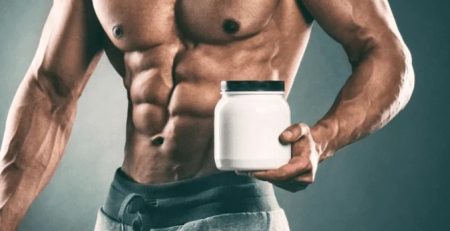How do Prohormones differ from Steroids?
You undoubtedly know about steroids as a fitness fanatic, and you may even have used them. What about prohormones, though? Prohormones and steroids are not the same substance, despite the frequent confusion between the two names. These two distinct chemicals share comparable effects. Prohormones, on the other hand, are a safer choice for fitness enthusiasts and bodybuilders who like to flaunt their muscular growth. Because prohormones take a different approach than steroids, they are thought to be considerably safer. Thus you could choose to give prohormones a shot if you’re searching for a less risky method of augmenting your muscle growth.
How do steroids work?
More specifically, a steroid is a material that has two main functions. It’s not always necessary to use them to gain muscle mass.
- Steroids have a major impact on the health of your cells. A few of them affect their permeability, which controls the amount of fluid that may enter or leave a cell. For this reason, they are essential to almost every biological activity in your body!
- They act as signals for all of our body’s steroid hormone receptors. They can make us appear more “manly” by inducing the release of testosterone.
It’s a common fallacy that all steroids are created the same, even though there are many different kinds of steroids. That is not possible to be true. Several different steroids can be used for different purposes. The drugs that we are concerned about are anabolic ones. These are the ones that affect our muscles and are also known as androgens.
Because of their many androgenic (male) properties, anabolic steroids can affect the quantity of protein that enters and exits cells. They can induce hair loss. Use of anabolic steroids should be done with caution since some quite serious side effects can occur. Steroids should only be prescribed by a physician, and in addition to the medicine, you have to follow their instructions.
Prohormone
Prohormone is a substance that the body converts to a hormone. They’re also often called “steroidal supplements,” which might be confusing since they’re not steroids themselves. Nor are they hormones in and of themselves—the body has to accomplish that. This can increase the bioavailability of hormones that are intractable or poorly absorbed after injection. Prohormones provide you the power to select the precise hormones you want to affect. If you wanted to see more androgenic qualities, for example, you might take a prohormone for testosterone to trick your body into thinking it was producing more of the hormone.
Most people believe that prohormones are less dangerous than steroids. While there are significant and potentially troublesome adverse effects with both, steroids are more likely to cause problems. Certain steroids have more side effects than others.
- There is a considerable risk of liver damage associated with all oral steroids.
- The injectable steroid nandrolone is extremely dangerous to your heart and should never be taken.
- The heart and prostate are two other organs that are seriously affected by Superdrol.
- There is a significant risk of hair loss associated with both Anadrol 50 and Superdrol.
Even while these steroids pose especially substantial risks, all of them include some risk of hair loss, liver and heart damage, and pain in the prostate when used orally. Prohormones, on the other hand, have a far less noticeable adverse impact profile. Many of them can cause problems similar to those caused by steroids because they overstimulate certain hormones, even if they are not completely risk-free.
Conclusion
Prohormones are safer because, among other things, your body is protected from overproducing hormones. Steroid use will directly change the hormone receptor sites, regardless of dosage. It is not possible to instruct the receptors to cease reacting to direct activation. Your body will try to control hormone synthesis and lower total hormone levels if you ingest too many prohormones. For this reason, it is generally thought to be safer to use prohormones rather than steroids.












Leave a Reply